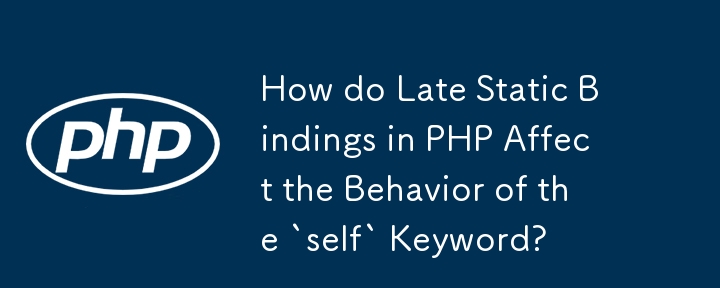

Understanding Late Static Bindings in PHP
Late static bindings represent a deviation from the traditional inheritance rules in PHP. The self keyword, which typically refers to the current class, exhibits a different behavior in PHP. Instead of following the inheritance chain, self always resolves to the class in which it is used.
This apparent limitation led to the introduction of late static bindings, providing a new use for the static keyword. When static is utilized, it binds to the runtime class, resolving to the class in which it is initially encountered.
To comprehend the nuances of late static bindings, it is imperative to grasp the distinctions between self, parent, and static when static is introduced. To delve deeper into these concepts, it is highly recommended to refer to the PHP manual's examples. These examples are essential for gaining a thorough understanding of late static bindings and the outcomes it can produce.
The above is the detailed content of How do Late Static Bindings in PHP Affect the Behavior of the `self` Keyword?. For more information, please follow other related articles on the PHP Chinese website!




